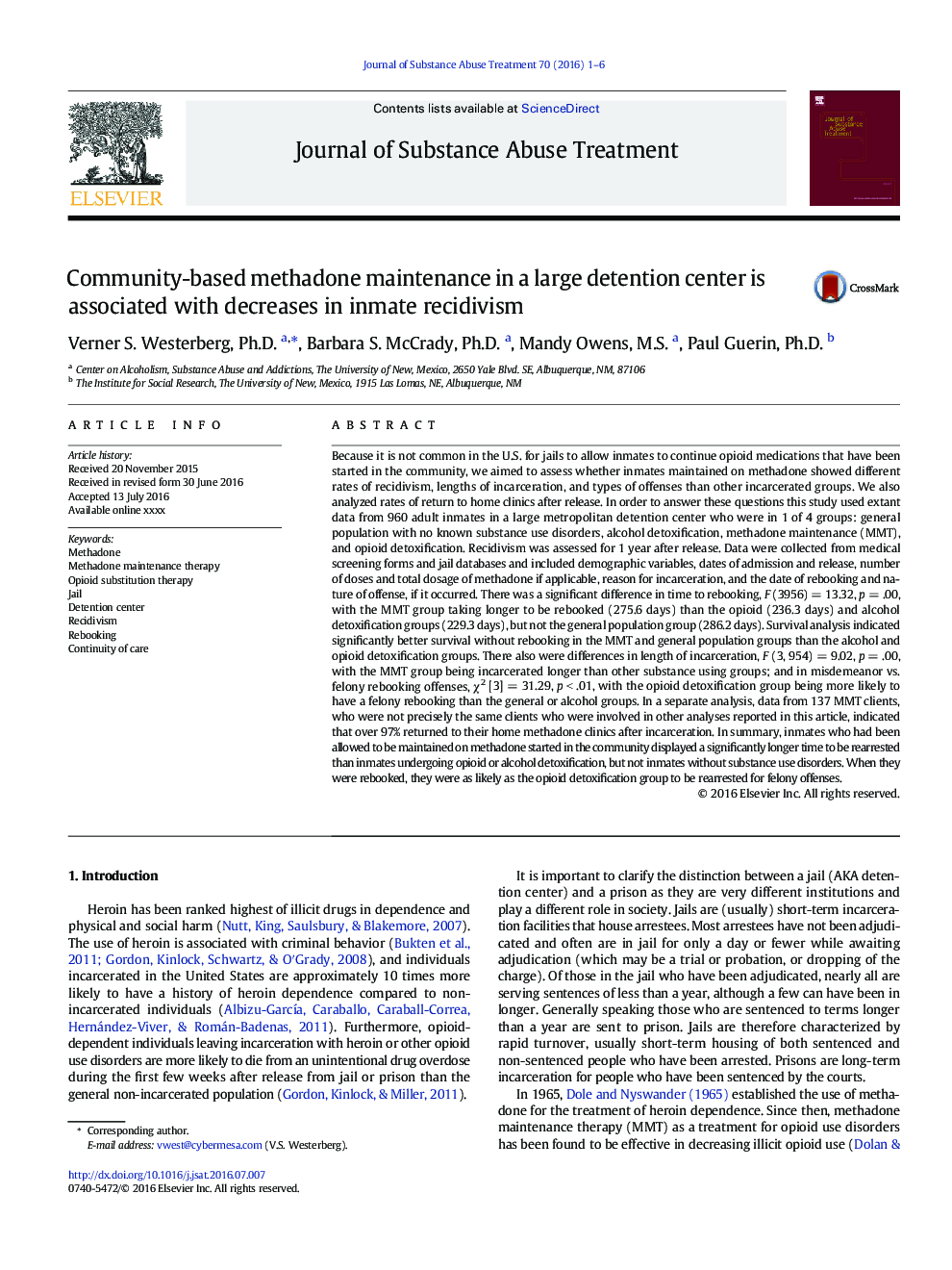| کد مقاله | کد نشریه | سال انتشار | مقاله انگلیسی | نسخه تمام متن |
|---|---|---|---|---|
| 494427 | 862792 | 2016 | 6 صفحه PDF | دانلود رایگان |
• A group of inmates on methadone in the community at the time of their arrest were maintained on methadone while incarcerated.
• Four groups' re-booking data, including those maintained on methadone during detention, opioid-dependent individuals not in treatment at the time of arrest who were detoxified in jail, individuals receiving alcohol detoxification, and general population inmates were assessed for 1 year following release.
• The methadone group was less likely to be rebooked and had a longer time to rebooking than opioid and alcohol detoxification groups.
• There was no significant difference in being rebooked for felonies for the opioid detoxification and methadone maintenance groups.
• Over 97% of those on methadone returned to their home clinics after release.
Because it is not common in the U.S. for jails to allow inmates to continue opioid medications that have been started in the community, we aimed to assess whether inmates maintained on methadone showed different rates of recidivism, lengths of incarceration, and types of offenses than other incarcerated groups. We also analyzed rates of return to home clinics after release. In order to answer these questions this study used extant data from 960 adult inmates in a large metropolitan detention center who were in 1 of 4 groups: general population with no known substance use disorders, alcohol detoxification, methadone maintenance (MMT), and opioid detoxification. Recidivism was assessed for 1 year after release. Data were collected from medical screening forms and jail databases and included demographic variables, dates of admission and release, number of doses and total dosage of methadone if applicable, reason for incarceration, and the date of rebooking and nature of offense, if it occurred. There was a significant difference in time to rebooking, F (3956) = 13.32, p = .00, with the MMT group taking longer to be rebooked (275.6 days) than the opioid (236.3 days) and alcohol detoxification groups (229.3 days), but not the general population group (286.2 days). Survival analysis indicated significantly better survival without rebooking in the MMT and general population groups than the alcohol and opioid detoxification groups. There also were differences in length of incarceration, F (3, 954) = 9.02, p = .00, with the MMT group being incarcerated longer than other substance using groups; and in misdemeanor vs. felony rebooking offenses, χ2 [3] = 31.29, p < .01, with the opioid detoxification group being more likely to have a felony rebooking than the general or alcohol groups. In a separate analysis, data from 137 MMT clients, who were not precisely the same clients who were involved in other analyses reported in this article, indicated that over 97% returned to their home methadone clinics after incarceration. In summary, inmates who had been allowed to be maintained on methadone started in the community displayed a significantly longer time to be rearrested than inmates undergoing opioid or alcohol detoxification, but not inmates without substance use disorders. When they were rebooked, they were as likely as the opioid detoxification group to be rearrested for felony offenses.
Journal: Journal of Substance Abuse Treatment - Volume 70, November 2016, Pages 1–6
